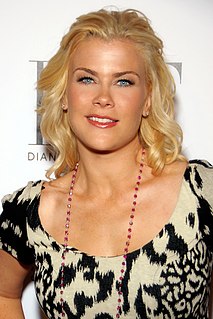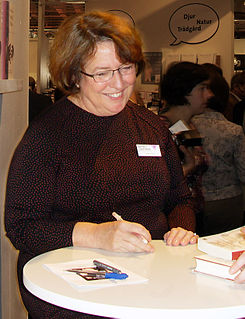A Quote by Drew Goddard
You start to fall in love with characters as you work with them, and anytime that you care about your characters and you realize that you're gonna have to kill them, that fear creeps in. It's sad. It's scary, and it's also sad. Because you like these people.
Related Quotes
Madge: I don't know why I keep shouting at them. The Doctor: Because every time you see them happy you remember how sad they're going to be. And it breaks your heart. Because what's the point in them being happy now if they're going to be sad later. The answer is, of course, because they are going to be sad later. ~ The Doctor, the Widow, and the Wardrobe
To me, and I'm sure for other writers, too, characters come back and they relive again, but what about those characters who only live for a page or two? Or for five pages or 10 pages. I like to think they're still out there - still living - but for me they kind of die, too. It's kind of sad. I don't think about them anymore unless I give them life again.
I feel like my strong side is not being technically perfect at the piano, but at curating my own work. It's not painful for me. I don't feel sad when I have to leave things out, put them in the safe, and not have them in public. I realize many artists feel sad about this process, but for me that's the most exciting part: By losing the weaker moments you make the strong moments stronger.
If you cared enough about your characters, what happened to them was interesting... it's important to care about them, about who they are and what they do...I don't really care whose side they are on, and they can be monstrous on the outside or, worse, on the inside, but you still have to want to spend time with them.





































